

SOCIAL
Stakeholders trained on integrated urban governance and spatial planning in Takoradi
The Sekondi-Takoradi Metropolitan Assembly (STMA in collaboration with the Institute of Local Government studies (ILGS) have begun a three-day training workshop on "integrated urban governance and spatial planning", for traditional authorities, Media, unit committee members and civil society organizations in Takoradi.
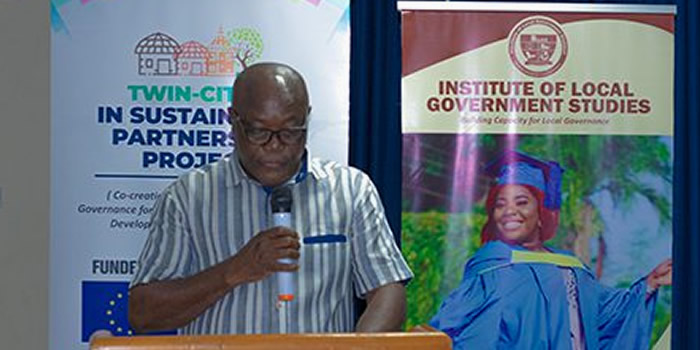
Date Created : 5/9/2023 12:00:00 AM : Story Author : Justina Paaga/Ghanadistricts.com
It is being attended by more than 50 participants and forms part of the implementation of the three-year European Union funded Twin-Cities in Sustainable Partnership Project (TCSPP) implemented in Sekondi-Takoradi and Palermo, Italy.
The Project is aimed at enhancing the capacity of authorities to address the challenges of urban sprawl, climate change and inadequate social safety nets for vulnerable populations within the Metropolis.
Opening the workshop, Mr. Abdul Mumin Issah, Metropolitan Chief Executive said last year, a similar training workshop was organized for all the Assembly Members, Spatial Planning Committee and Metropolitan Planning & Coordinating Unit of Sekondi-Takoradi Metropolitan Assembly.
He explained that the primary objective of the workshop was to enhance the capacity of the participants on urban planning methods and principles to ensure that they support STMA to translate the national urban policies into local development, urban and land-use management plans, with gender-inclusive and climate change perspectives.
According to him, in Ghana, the Metropolitan, Municipal and District Assemblies were mandated to ensure all settlements grew according to their approved spatial plans.
That, he noted was directed by the three-tier spatial planning model (spatial development framework, structural and local plans) which provided the basis for spatial dimensions of Medium-Term Development Plans and decisions regarding permitting applications.
Mr. Issah indicated that STMA however, out of the 48 communities within the jurisdiction of STMA, only 20 had local plans that were fit for purpose, "This deficiency has resulted in unregulated and haphazard physical development, perennial flooding, waste management problems, missing links between housing and basic social facilities, neglect of gender-considerations in planning and inadequate utility service provision for the affected communities"
The MCE said the rapid increase in population, urban sprawl and climate change over the last two decades had been identified as major contributory factors to many of these challenges.
He said the workshop was designed to generate tangible contributions towards shaping the future sustainable and integrated urban landscape of Sekondi-Takoradi; through co-creation of monitoring and evaluation guiding document for gender-inclusive urban planning.
He said the practical aspect of the training would ensure the development of 10 Community-based Local Plans through a participatory process, this among others would help the city authorities to start its plans to regenerate older settlements, correct the distortions between approved land-use plans and what existed on the ground.
He said the training was expected to facilitate the mobilization of grassroots support for the enforcement of land-use plans, strengthen the existing accountability mechanisms through a bottom-up approach and broader involvement of stakeholders.
" This training and many others that STMA is organizing through the TCSPP are expected to significantly improve upon the Assembly’s urban development planning and design; enhance the permitting processes and generally improve service delivery by the Assembly".
Professor Nicholas Awortwi Director at the ILGS who took the participants through decentralization and Metropolitan Governance, Managing Municipalities as businesses, city competitiveness and strategic planning and managing waste in Sekondi-Takoradi Metropolitan, called for attitudinal change and de-politization of issues at the Assemblies.
He commended STMA for its achievements so far, adding that it was among the best performing Metropolitan Assemblies in the country, "when it comes to local governance, pragmatic ideas and innovations STMA is doing very well”
Prof. Awortwi said the various Metropolitan, Municipal and District Assemblies could perform effectively under the decentralization system if things were done differently devoid of the bureaucracy.
He said it was not against the law for district Assemblies to involve the private sector in the operation of some of their programmes, such waste collection and management, adding that Assemblies could also be managed as businesses through partnerships.
Prof Awortwi advised residents to patronize the services of the Public Relation and Complaints Committees of the Assemblies to address their challenges.
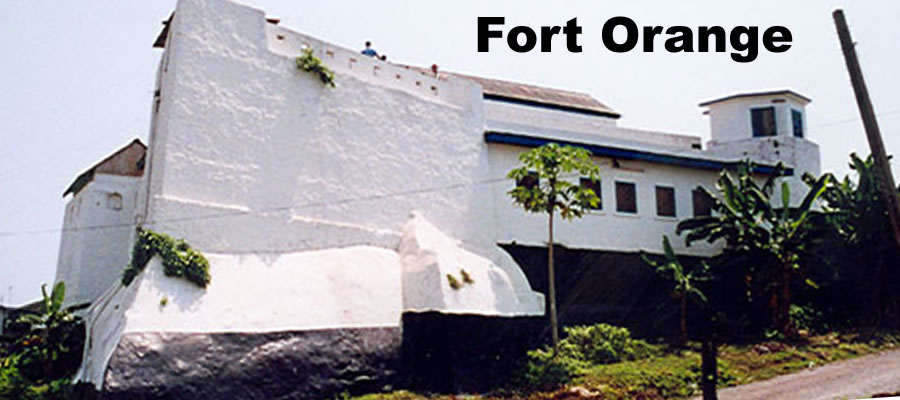

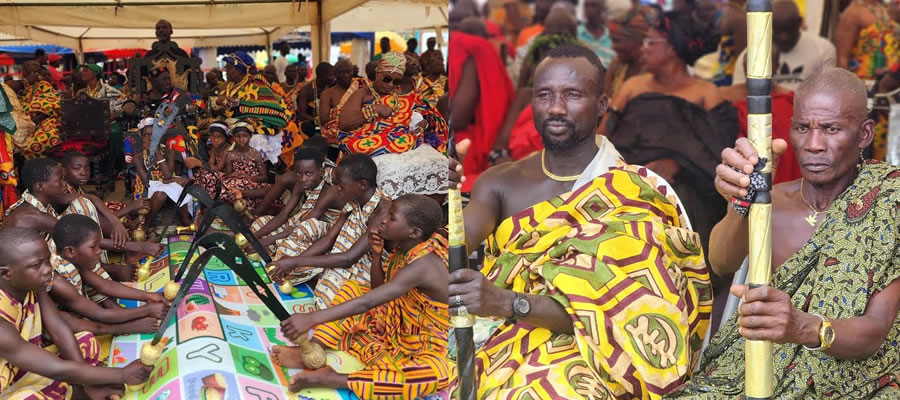

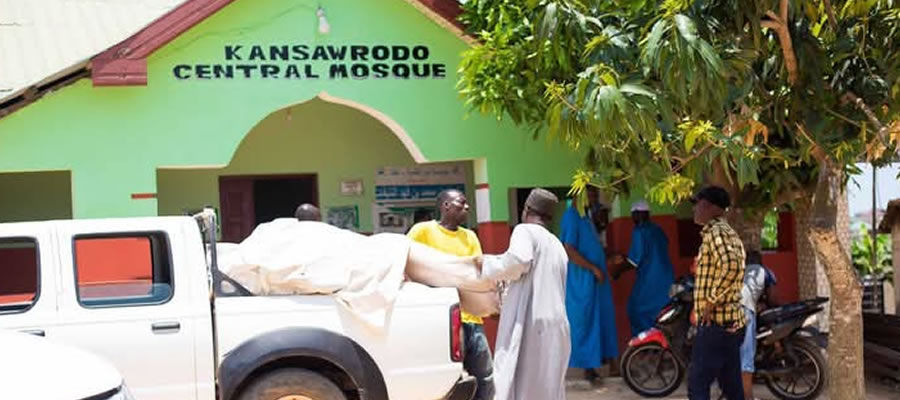

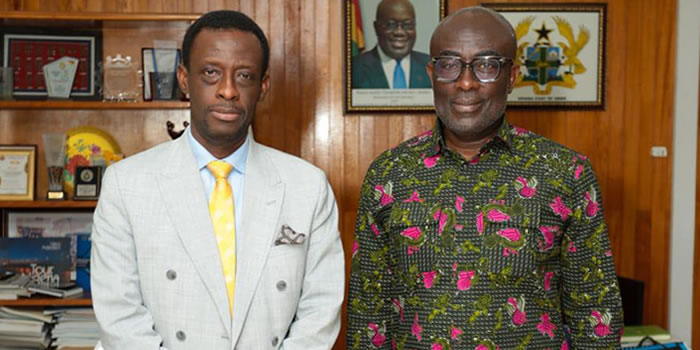
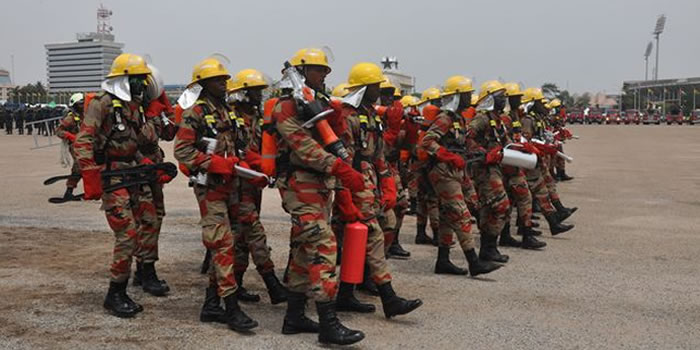

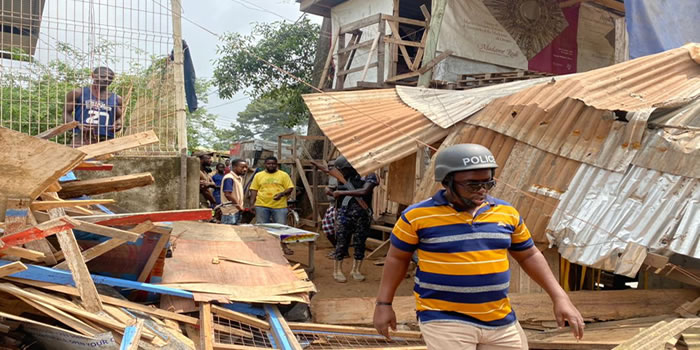
 facebook
facebook
 twitter
twitter
 Youtube
Youtube
 +233 593 831 280
+233 593 831 280 0800 430 430
0800 430 430 GPS: GE-231-4383
GPS: GE-231-4383 info@ghanadistricts.com
info@ghanadistricts.com Box GP1044, Accra, Ghana
Box GP1044, Accra, Ghana